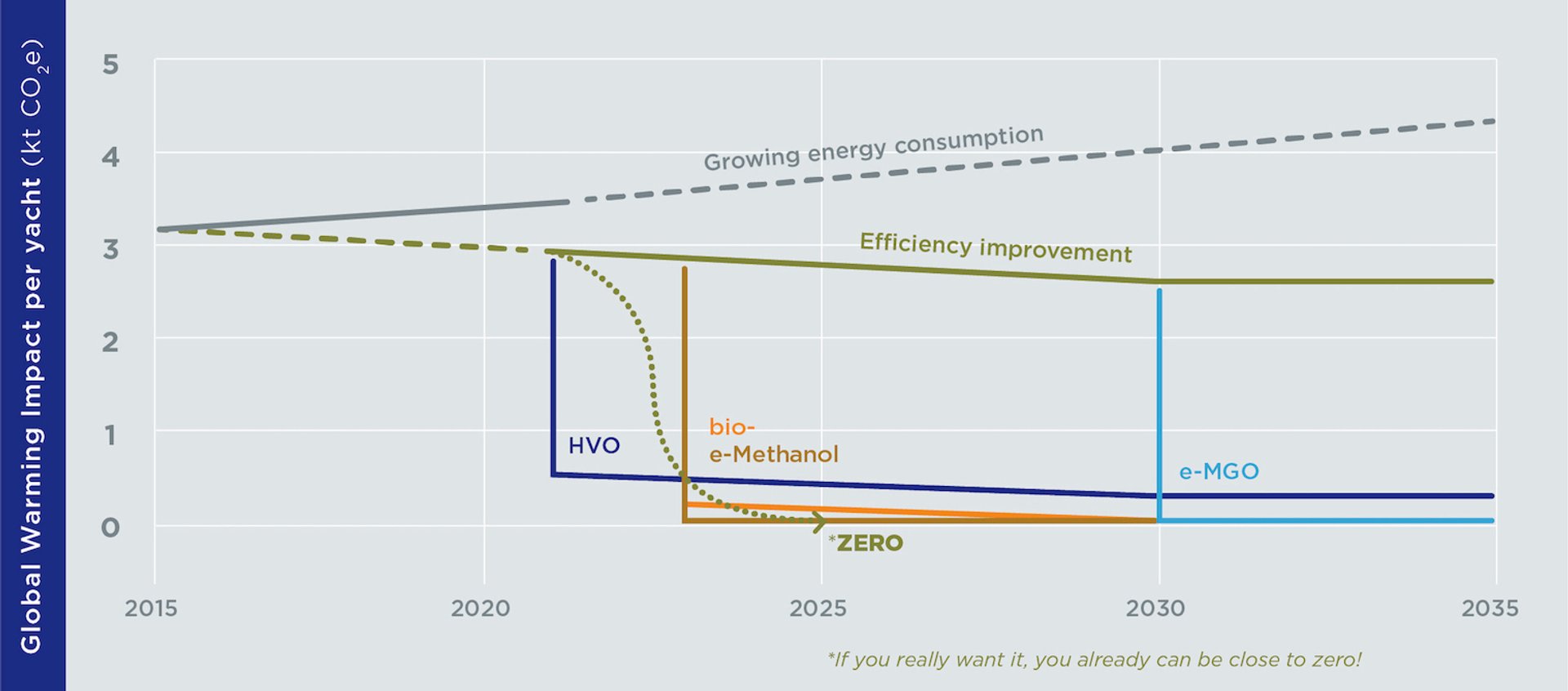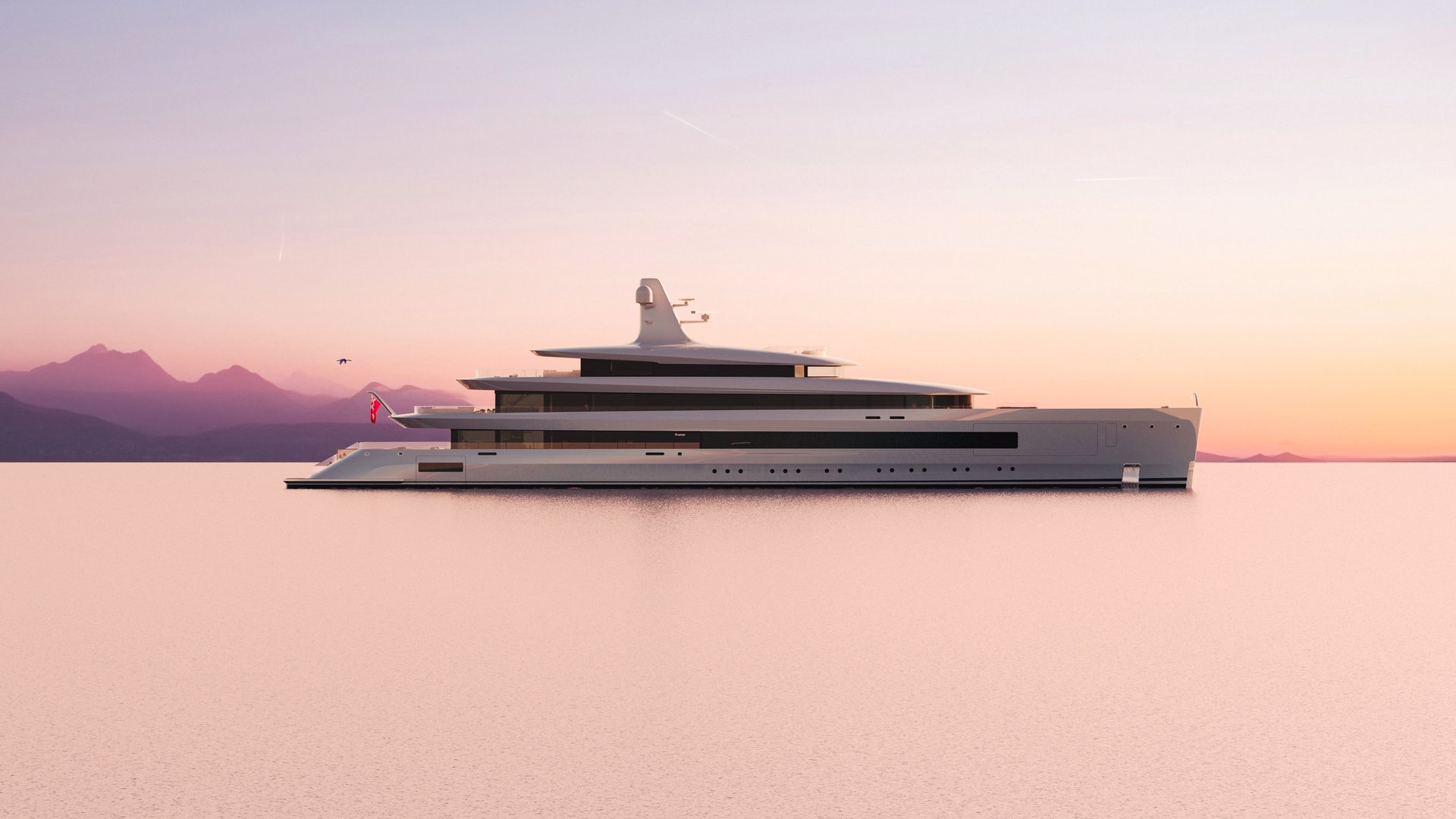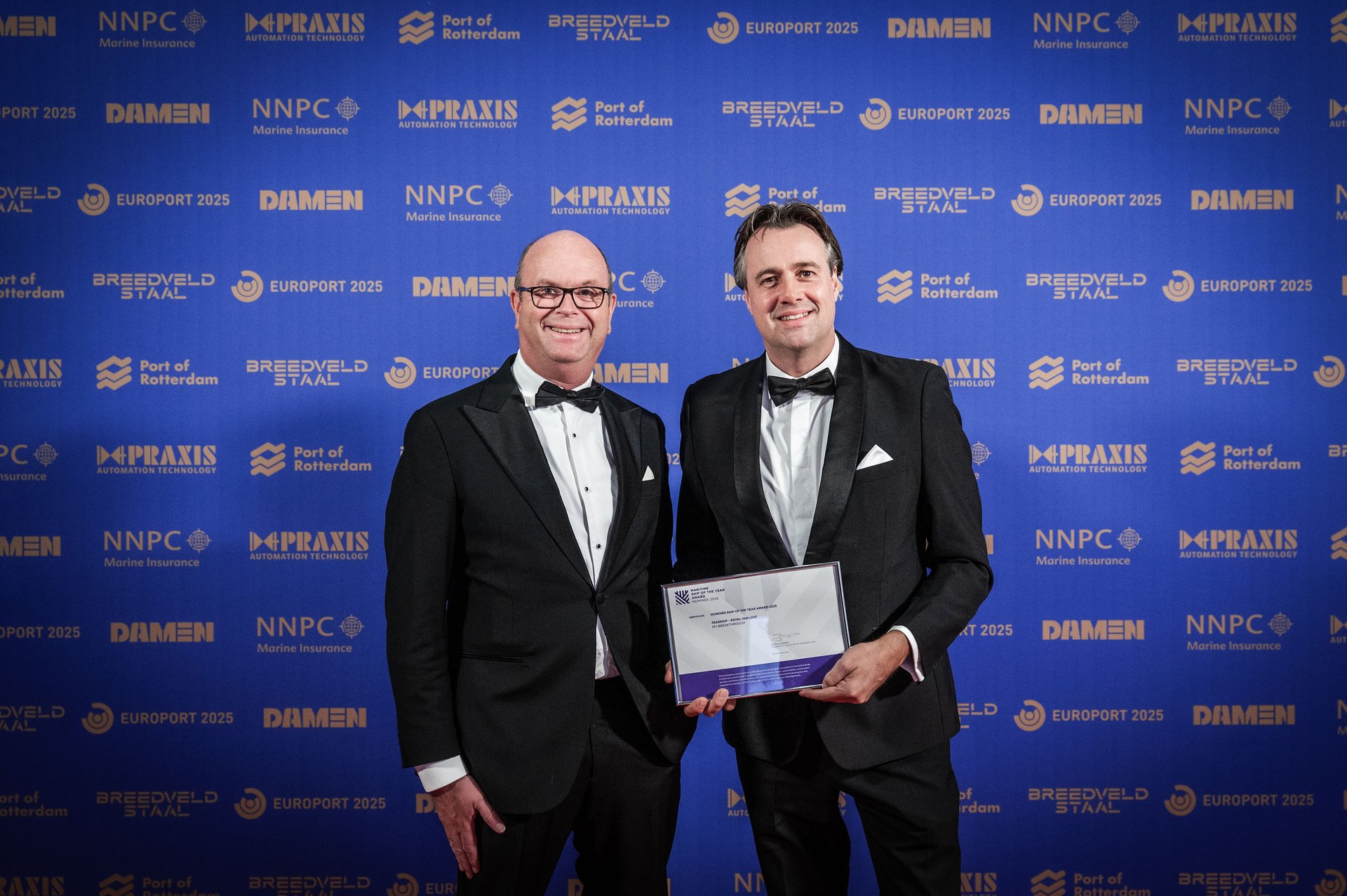It’s the fuel, stupid!


They say innovation is a result of frustration. Working for thirty years in the yachting industry, the last ten of which with an almost constant attention to all things green, has provided sufficient frustration to push a lot of innovation. Coming to grips with the impact of our past, current, and future builds on the world made it clear that things needed to change to keep yachting ‘acceptable’ for owners but also for people like me, working in the industry, and the wide world outside the yachting industry.
by Bram Jongepier, Senior Specialist Feadship De Voogt Naval Architects
Together with like-minded industry minds the YETI (Yacht Environmental Transparency Index) has been developed over the past four years, which now provides the possibility to assess the design of a yacht on its efficiency to convert fuel to energy and the emissions caused by this.
Laws of nature cannot be cheated
The YETI will support the drive to build more efficient and cleaner yachts, which is essential. However, efficiency gains and emission reductions alone cannot do the job. Without sacrificing luxury, size, freedom and all the other reasons to build a yacht, efficiency can be raised by 20, 30, maybe 40%, but at some stage we’ll have reached the maximum of what is technologically feasible; laws of nature cannot be cheated. The only way for further reduction is to change our fuel.
The supply and combustion of fossil fuels, which is the current / conventional way to provide energy to yachts, contributes around 90% of the lifetime impact of a yacht. So in order to achieve close to zero impact yachting, the energy provided to the yacht (i.e. fuel & shore power) must be of a sustainable type. With the last decade of development in support, Feadship is able to ensure the new or existing yacht is prepared to use such sustainable sources. It is the operators, managers and owners who ultimately decide which fuel to use on board. Using sustainable fuel can reduce the impact of a yacht significantly, the main effect will be a close to net zero emission of CO2. Other emissions, like NOx or particulate matter, may depend on which alternative fuel is used.
A common misconception is that there are no good alternative fuels available today, or that existing yachts are not suitable to use them. Although it is less easy to get (and more expensive), HVO is a real drop-in alternative to reduce impact. This year we’ve seen some owners in the existing fleet putting their foot down and insisting on only using HVO on board, so hopefully this will create the demand which will incentivize the supply side. Yes, dear fuel suppliers, owners want to bunker sustainable fuel!
Similarly, owners may demand green shore power when plugging into the land-based power network. Depending on the size and location of the yacht, the use of shore power could be a sizable chunk of the yearly impact, and owners demanding green shore power will provide business opportunities for yacht harbours.
In the not-so-far-away future, methanol and hydrogen will be part of the available sustainable fuel marketplace. Of the current methanol and hydrogen on the market less than 5% is produced sustainably, but these percentages are expected to rise fast. Maritime type approved dual fuel engines and fuel cells will be available in a couple of years, so new Feadships (with a very conservative estimated lifespan of thirty years) are now built to cope with that changing fuel marketplace.
Start today!
In the end, money is a factor of influence. Sustainable fuels are more expensive today, getting it supplied and being sure of its green credentials (due diligence) is more work so cost will increase. But dear operators, managers and owners: Is sourcing fuel for the lowest price the right approach in these times? Is even doubling or tripling the fuel budget for your yacht (estimated at 10-15% of total running cost) really prohibitive? The year 2023 has just started, so speak up and set your target for the remainder of the year. Do the right thing, and insist on sustainable energy supply for your yacht, starting today!
Notes:
YETI Yacht Environmental Transparency Index: Comparable to the energy label on your fridge, it uses ship design data and operational profile to compare very different yachts on a common basis.
NOx Nitrogen/Oxygen compounds: part of diesel engine exhaust emissions, related to greenhouse effects, acid rain and respiratory diseases. Like the catalytic converter on cars, exhaust treatment has been mandatory for yachts since 2016 (2021 for small yachts <500GT).
HVO Hydrotreated Vegetable Oil: Sustainably produced replacement of fossil diesel fuel, made from used cooking oil, animal waste fats or other sources. Conversion efficiency – amount of sustainable energy needed to create fuel – is not very high. Short term solution until methanol equipment (engines, fuel cells) is market ready.
Methanol Liquid alcoholic fuel, suitable for next generation diesel engines or fuel cells. Can quite easily be produced out of sustainable sources. The energy density is about half of that of HVO or diesel, so storage capacity needs to increase.
Hydrogen Gaseous fuel, suitable for fuel cells. No emissions aside of water and heat. Storage on board in compressed or cryogenic form uses much more space than liquid fuels, so not practical for full endurance. Application for local zero emission range like Norwegian fjords.







